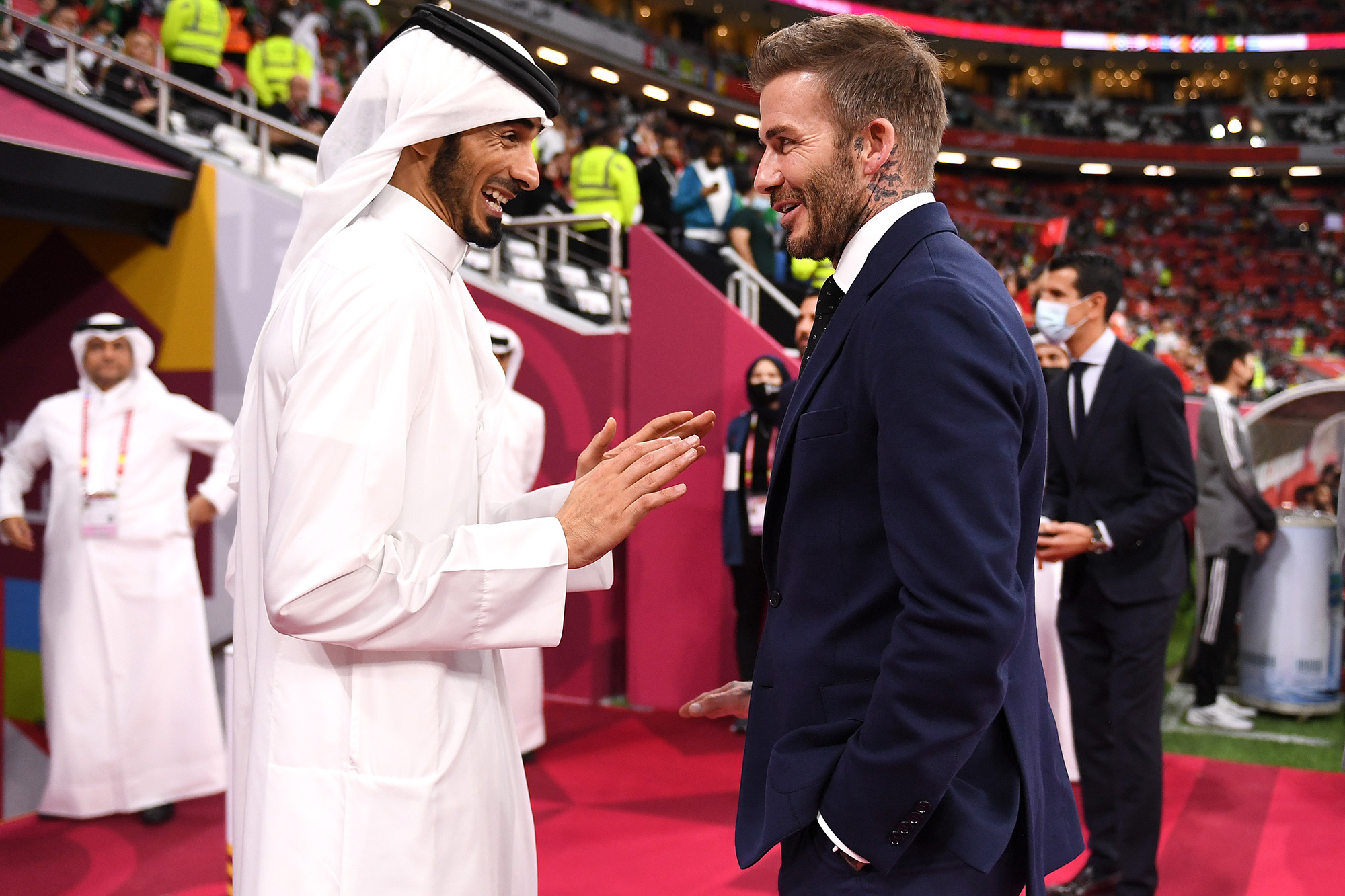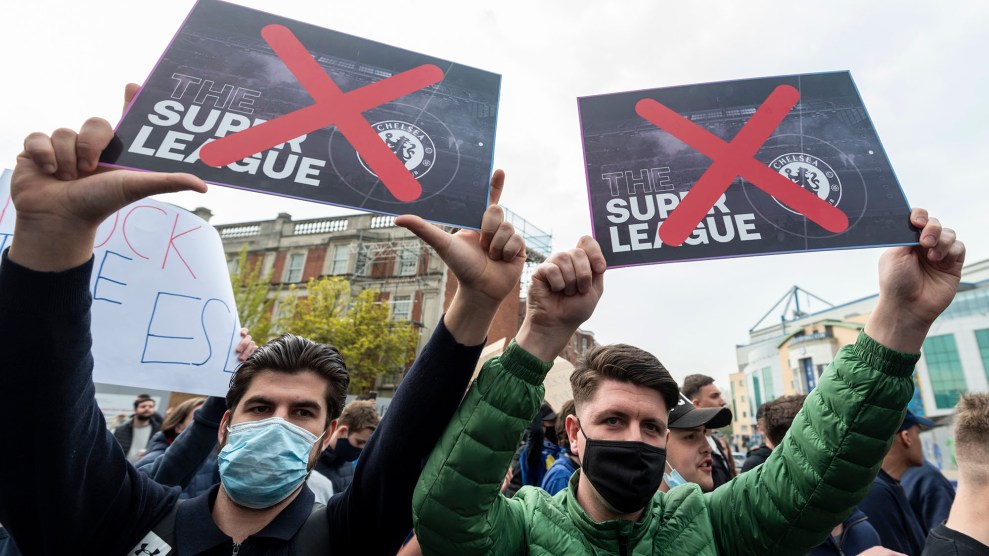Read Tim Murphy’s cover story on how the story of soccer became the story of everything here.

TEAMS
Qatar Sports Investments, a subsidiary of the country’s sovereign wealth fund, purchased Paris St.-Germain in 2011 and turned it into one of the biggest clubs in Europe. In advance of the World Cup, PSG spent more than $750 million to acquire and sign three of the sport’s marquee names—Argentina’s Lionel Messi, France’s Kylian Mbappé, and Brazil’s Neymar. The club’s growth was powered by lucrative sponsorship deals with companies controlled by the Qatari state, such as Ooredoo, Qatar National Bank, and the Qatar Tourism Authority, while flouting cost-control rules imposed by UEFA, the sport’s European governing body.
In addition to PSG, the state-owned airline, Qatar Airways, has also sponsored the Italian club AS Roma, Argentina’s Boca Juniors, and FC Barcelona. For a couple years, angry supporters of Bayern Munich have confronted the team’s leadership about Qatar’s human rights record, in light of the club’s $22.5 million-a-year arrangement with Qatar Airways. “Democracy in Germany didn’t occur overnight,” the club’s president responded. “It was also a development process.”

INFRASTRUCTURE
Qatar’s biggest World Cup investment, by far, has been in the country itself. It has spent $200 billion on infrastructure projects in advance of the tournament. Those projects include seven new stadiums (and an expensive renovation of its one existing stadium), a metro system, roads, and an artificial island in the Gulf with a luxury hotel. But the country’s transformation has come at a huge human cost. Last year, a Guardian investigation found that at least 6,500 migrant workers from South Asian nations have died in the country since the World Cup was awarded in December 2010. The government in Doha—and the president of FIFA—has disputed that figure, but a 2014 report commissioned by Qatar found that about 1,000 workers had died in just a few years, at a rate of more than one per day.

INFLUENCERS
Last year, the retired English star David Beckham signed a reported 10-year, $200 million deal with Qatar to serve as a pitchman for the country. He’s stopped by a hospital, pressed the flesh with statesmen at the Doha Forum, and cut a flashy 30-minute tourism video in which he samples food and rides motorcycles through the country like an uninquisitive Anthony Bourdain.
Qatar has also recruited other retired soccer legends, including Samuel Eto’o of Cameroon and Cafu of Brazil, to serve as “global ambassadors” for the World Cup. In March, they lined up alongside content creators at the “Influencer Cup”—a six-a-side tournament held at one of Doha’s newly completed World Cup stadiums.

TELEVISION
TV revenue is the lifeblood of top-level club soccer, and Qatar’s state-funded network, beIN Sports, has become one of the most important institutions in the business by spending billions to broadcast club competitions and international tournaments. In recent years it has paid $120 million to broadcast Spain’s La Liga, $360 million for the rights to Turkey’s Süper Lig, $500 million to air English Premier League games, and $600 million to broadcast Champions League matches.
This investment has brought enormous influence. The company’s chairman, Nasser Al-Khelaifi, is also chair of PSG, president of the European Club Association, and a member of UEFA’s executive committee. Khelaifi, who has been called “the most powerful man in football,” was instrumental in scuttling last year’s proposed Super League. The importance of beIN to Qatar has made the network a geopolitical target; in 2020, beIN accused Saudi Arabia of supporting an effort to pirate Premier League broadcasts in the Middle East during a long-running economic blockade that ended last year.
Illustrations by Lily Lambie-Kiernan
















